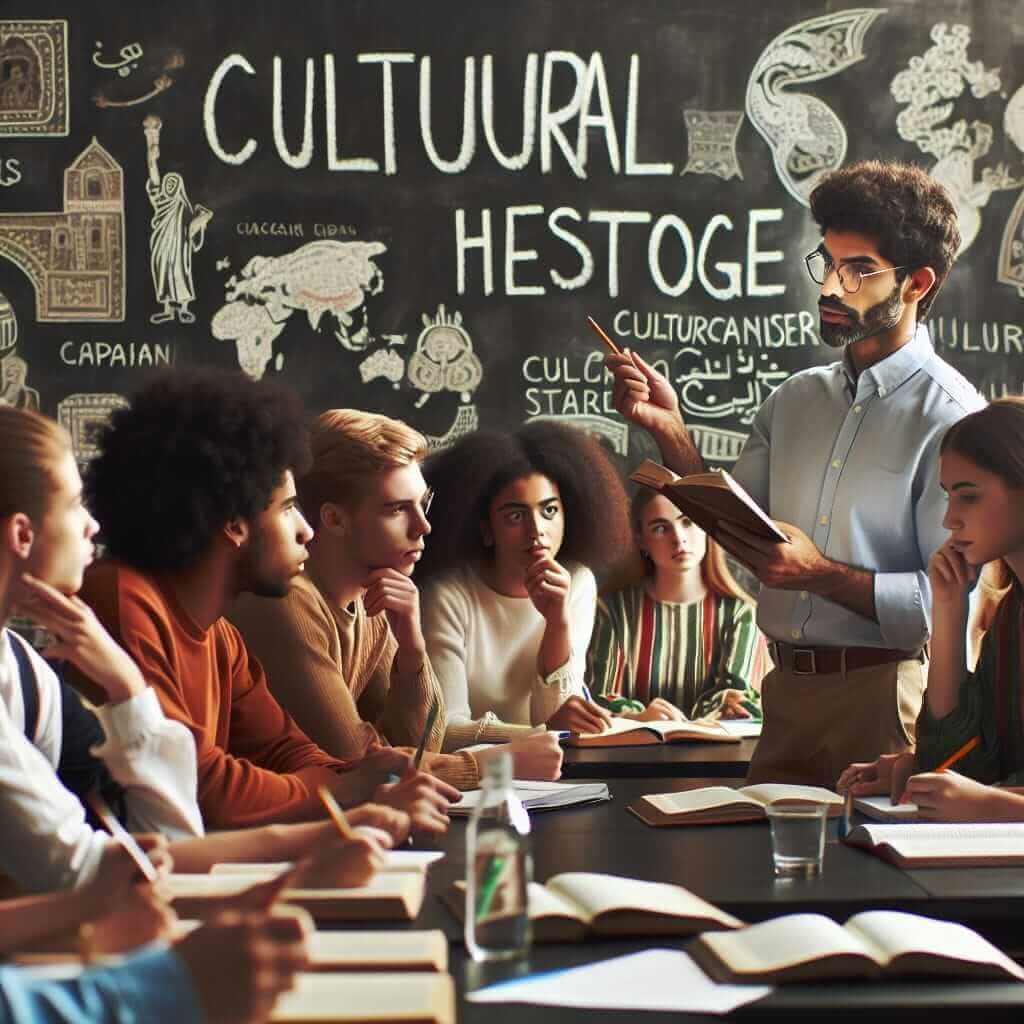The concept of cultural preservation through education has become increasingly prevalent in discussions about the role of education in modern society. Given the globalization trends and the fast-paced technological advancement, maintaining cultural heritage and identity is more crucial than ever. This topic has often been featured in IELTS Writing Task 2, reflecting its importance. In this article, we will analyze the role of education in cultural preservation and provide an IELTS Writing Task 2 sample essay on this topic, helping learners improve their writing skills.
Main Content
Sample Task: IELTS Writing Task 2
Some people believe that education plays a significant role in preserving a nation’s cultural heritage. To what extent do you agree or disagree?
Analyzing the Essay Prompt
To write a successful essay on this topic, it is imperative to understand the key components of the prompt:
- Topic: The role of education in preserving cultural heritage.
- Task: Discuss the extent to which you agree or disagree.
Points to consider:
- Define what cultural preservation means in the context of education.
- Include arguments for how education contributes to cultural preservation.
- Present counterarguments if any, but maintain focus on your stance.
Model Essay
Introduction:
Education is undoubtedly a cornerstone of any society. In the realm of cultural preservation, education is seen as a vital area for maintaining and transmitting cultural heritage from one generation to another. I firmly believe that education plays a critical role in preserving cultural heritage, which is supported by various factors such as curriculum design, awareness programs, and the role of educators.
Body Paragraph 1:
Firstly, education systems incorporate cultural studies as an integral part of the curriculum, thereby ensuring that students receive ample exposure to their own cultural traditions and history. For instance, subjects like history and literature often include significant elements of a country’s cultural heritage. This structured educational approach helps instill a sense of pride and continuity concerning one’s cultural background.
Body Paragraph 2:
Secondly, educational institutions often conduct extracurricular activities that focus on cultural events, festivals, and traditions. These activities create a practical understanding and appreciation of cultural uniqueness among students. By participating in cultural festivals, heritage walks, and traditional performances, students get hands-on experience in cultural practices, which enhances their emotional and intellectual connection to their heritage.
Body Paragraph 3:
Furthermore, educators themselves play a pivotal role. Teachers, being cultural ambassadors, can effectively relay cultural knowledge and emphasize its importance. The way educators present cultural subjects can significantly impact students’ attitudes towards their own heritage. In cases where educators actively engage students in discussions about historical contexts and cultural significances, the likelihood of preserving these traditions increases substantially.
Counterargument and Rebuttal:
Admittedly, some might argue that modern education systems overly emphasize global rather than local cultures due to the influence of globalization. However, this challenge can be mitigated by ensuring that national education policies vigorously promote cultural education as a non-negotiable part of the curriculum. By balancing global knowledge with local traditions, education can indeed serve its dual purpose of informing and preserving.
Conclusion:
In conclusion, it is irrefutable that education holds a pivotal role in the preservation of cultural heritage. Through well-structured curricula, involvement in cultural activities, and the influence of educators, education systems can effectively safeguard cultural traditions for future generations. Therefore, the role of education in cultural preservation should not be underestimated but rather emphasized in our educational strategies.
Word Count: 336

Tips for Writing on this Topic
- Understand the Prompt: Grasp what cultural preservation means and how education impacts it.
- Structure Your Essay: Start with an introduction, followed by body paragraphs presenting arguments and counterarguments, and end with a conclusion.
- Use Specific Examples: Clarify your position with real-world examples.
- Stay on Topic: Ensure each paragraph ties back to the main argument.
- Balance Your View: Present a balanced view but clearly state your stance.
Vocabulary to Remember
- Heritage (n.) /ˈherɪtɪdʒ/: Property that is or may be inherited; an inheritance.
- Curriculum (n.) /kəˈrɪkjʊləm/: The subjects comprising a course of study in a school or college.
- Extracurricular (adj.) /ˌɛkstrəkəˈrɪkjʊlər/: (of an activity) pursued in addition to the normal course of study.
- Traditions (n.) /trəˈdɪʃənz/: Customs or beliefs passed down from generation to generation.
- Ambassador (n.) /æmˈbæsədər/: A representative or promoter of a specified activity.
Conclusion
In summary, education plays an indispensable role in the preservation of cultural heritage. The IELTS Writing Task 2 prompt explored in this article is likely to recur, given its relevance and importance in today’s globalized world. Preparing well for such topics will not only help in excelling in the IELTS but also enhance your understanding of how integral education is in maintaining our cultural legacy. Possible future related IELTS prompts could be:
- “The impact of globalization on cultural preservation: How can education help?”
- “Discuss the role of schools in promoting cultural heritage in multicultural societies.”
By practicing essays on these topics, learners can better prepare for their IELTS exams and contribute to the broader discourse on cultural preservation.